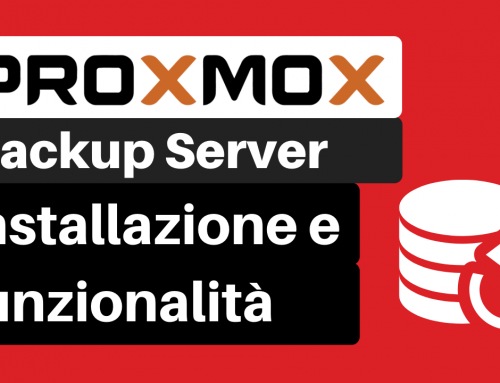Proxmox Backup Server is enterprise-class client-server backup software that backs up virtual machines, containers and physical hosts.
It is a bare metal solution (ie it installs directly on the physical server without the need for anything else) based on Debian.
It is specially optimized for the Proxmox Virtual Environment platform and allows you to backup and replicate data securely. Provides easy command line and web interface management.
It is licensed under GNU AGPL, v3 and like Proxmox VE it is free software.
Proxmox Backup Server supports incremental backups, data deduplication, compression and authenticated encryption.
PBS is developed using the Rust language which guarantees high performance, low resource usage and a secure and high quality code base.
One of the notable features is the support for strong client-side encryption. This features allows you to back up data to not completely reliable destinations, such as remote sites.
Currently the solution is in Beta version and you can download it to install and test it.
Main features
Proxmox VE backup support:
Proxmox Backup Server fully supports the Proxmox VE virtualization environment from 6.2.10 both from the web interface and from the command line and allows you to perform VM and CT backups. Each PBS can connect to several Proxmox VEs.
Deduplic:
Periodic backups produce large amounts of duplicate data. The deduplication algorithm avoids redundancy and minimizes the storage space used, optimizing the PBS storage space.
Incremental Backups:
Statistically, the changes between VM and CT backups are generally low. Incremental backups allow you to send only the data that has changed between one backup and another. This mechanism reduces storage space, the impact on network traffic and reduces the I / O of both PVE and PBS.
Data integrity:
The built-in SHA-256 checksum algorithm ensures accuracy and consistency in backups, avoiding data corruption.
Remote synchronization and backup outsourcing:
Data can be efficiently synchronized to remote sites, thus allowing the data to be simply relocated to geographically distant sites. To do this, only the deltas containing new data are transferred (incremental backup).
Kernel-level ZFS support:
Proxmox Backup Server supports the ZFS filesystem at kernel level that brings with it a high number of features such as the integrated ZFS Raid that can be managed simply by GUI, deduplication at the filesystem level, the management of datastores.
Using ZFS, corporate functionality can be achieved even with low-budget hardware, but also high-performance systems by leveraging SSD cache or even SSD-only configurations.
ZFS replaces expensive hardware raid cards with low CPU and RAM load combined with easy management.
Datastore management:
Management of multiple Datastores through GUI, possibility to define rules, user permissions and statistics for each Daatastore.
Creation, management and support of ext4, xfs and zfs file systems.
Backup management:
Verification, download, prune function (selection and cancellation based on the scheduling), time scheduling.
Compression:
Ultra-fast compression Zstandard is capable of compressing several gigabytes of data per second.
Encryption:
Backups can be encrypted on the client side, using AES-256 in Galois / Counter Mode (GCM). This authenticated encryption (AE) mode offers very high performance on modern hardware.
Graphic interface (WEB GUI):
Manage the Proxmox Backup server with the integrated web-based user interface.
Users and permissions:
Proxmox Backup Server is able to manage users and permissions in order to provide granular access to data.
Licenza Open Source:
Proxmox Backup Server is free and open source software. The source code is licensed under AGPL, v3.
Proxmox Backup Server may be used, redistributed or modified under the terms of the GNU Affero General Public License as published by Free Software Foundation.
